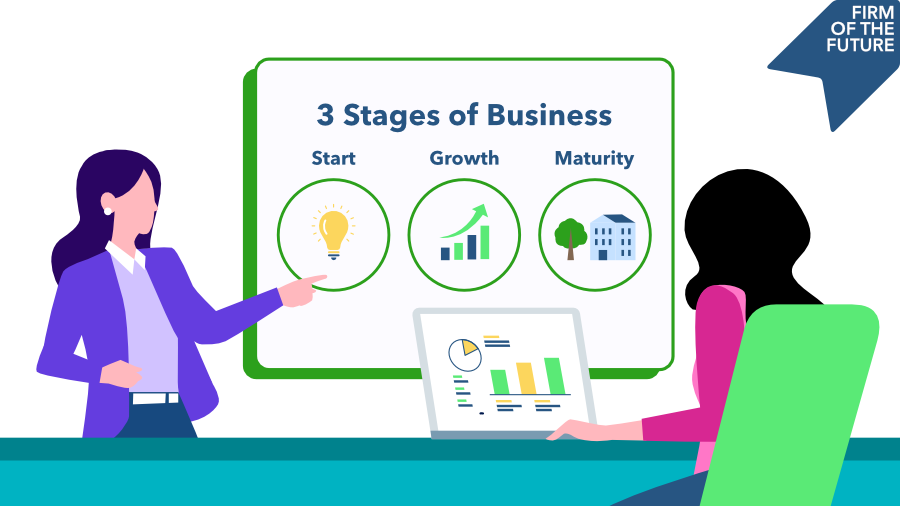Advisory services are growing, they’re profitable, and they represent the future of the accounting profession. But, what exactly are client advisory services (CAS)? In the simplest terms, client advisory services are any form of advice regularly given to a client in relation to their business.
Turn one-off questions into a strategic service
Many accounting professionals offer this level of service without realizing it. For example, have you answered client questions about cash flow issues or offered advice on how to get a short-term loan at a decent rate?
When discussing the challenges with attracting and retaining talent, have you presented the advantages of offering an employee benefits package? During tax season, have you ever helped a client look for ways to save money?
Focusing on CAS at different stages of the business lifecycle
In this article, we will highlight different advisory services and explore how they correlate with the lifecycle of a typical business. My goal is to help you turn those one-off client questions into a strategic effort to provide these services to your clients on a consistent basis.
Business lifecycle models come in many shapes and forms—usually anywhere from 4-7 stages. For our purposes, we’ll boil it down to three stages: startup, growth, and maturity. Your client’s business stage will determine the advisory services that make the most sense for them.





